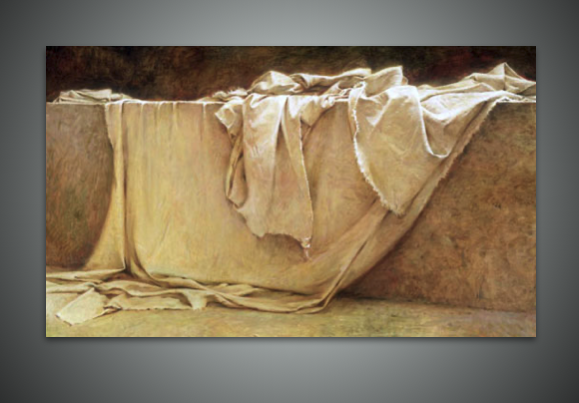Long before Jesus hung on the cross, Job revealed through the assertion, “I know that my Redeemer lives,” that he tenaciously clung to a personal hope for his future. Job 19:25 Unlike Job, whose confidence in God was based upon his expectation of what would transpire, our faith is based upon what God has already accomplished through Christ.
Here is a sampling of why we can know the resurrection really happened. These are nuggets worth sharing in a postmodern world where lives have lost a single compelling focus and thus drift in a multitude of directions.
1. Women(!) found the tomb empty
At first glance the skeptic might query, “How can this be significant evidence for the resurrection unless you already believe the story is true?” But such a lighthearted dismissal fades when the cultural details are known.
In the first century Jewish culture, women were not considered credible witnesses in court. (Sorry about that, ladies.) Thus if someone wanted to fabricate a story about Jesus rising from the dead, why would they undermine its credibility by having women as the primary witnesses?
Accordingly, from that cultural viewpoint there is no motive for a writer to claim women were the first to see the empty tomb and to hear from angels that Jesus was risen – unless this is what happened. That women discovered the empty tomb and Mary subsequently encountered the risen Lord bears the stamp of historical authenticity, not legend.
There are also other “embarrassing” details which reveal the historical genuineness of this story, such as some of disciples doubting that they were beholding the risen Lord. This evidence further separates the Gospels from fictitious propagandist legends.
2. Even if we were to retreat to the limited evidence that skeptics will accept, 1 Corinthians is too early for legendary material to have developed.
Even those who are antagonistic against accepting Scripture as God’s message will admit Paul wrote 1 Corinthians. And what did Paul write? He claimed there were living eyewitnesses to the raised Christ – including himself. Paul practically invited those doubting the resurrection to go check it out! 1 Corinthians 15:5-8
What may be most significant for the skeptic is when Paul penned these thoughts. History reveals that legends develop long after all the eyewitnesses are dead. Yet, the general consensus is Paul wrote 1 Corinthians about 55 A.D. to 57 A.D. a mere 25 years after Jesus’ death. And as he indicated, many of the witnesses were still alive. Hence, the veracity that Jesus had risen from the grave could still be verified.
Furthermore, 1 Corinthians reveals "Jesus is risen" was not a new message. It was being proclaimed earlier than the mid 50’s!* Accordingly, to believe such a story was fabricated so soon after the event abandons following the evidence and instead exposes one’s presumptions.
3. Prior to Jesus birth, the resurrection of the Christ (Messiah) had been announced.
Drawing upon the words of David, Peter proclaimed to those standing before him that David had foretold Christ’s resurrection. Peter claimed that since David was a prophet, when he prophesied God would not allow His Holy One to see decay, David was pointing forward to the resurrection of Christ. Acts 2:22-36
The resurrection of Jesus was not an idea which Jesus’ followers invented in order to erase an embarrassing turn of events. Rather the news of this event had already been woven into the message of Scripture long before Jesus had even been born.
Conclusion: Can we seek the comfortable position of not offending anybody by claiming uncertainty? Paul does not permit us that luxury; he forces us to either accept the truthfulness of his message or denounce him as a liar. 1 Corinthians 15:14-15
There is evidence embedded in history and Scripture which points in the same direction for those who are willing to take a hard, long look. Jesus is risen! We can know our Redeemer lives!
*For those of us who believe scripture, we understand that Jesus’ resurrection was publicly proclaimed a mere 50 days after his crucifixion! (Acts 2)
- Forgiving Ourselves - 2025-07-16
- God’s answer for modern living - 2025-07-09
- Secure Living - 2025-06-25
